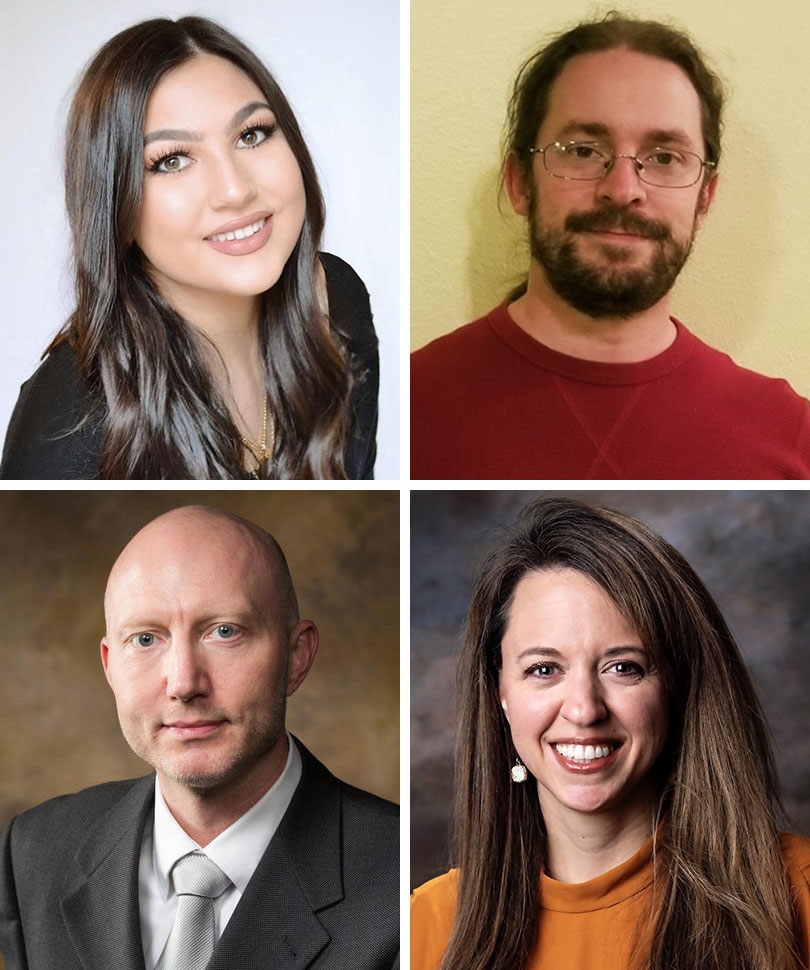
An interdisciplinary team of University of Arkansas researchers has come together to develop a surgical spoon that is currently in clinical testing to make a common veterinary procedure safer and more effective.
Faculty and students from the Dale Bumpers College of Agriculture, Food and Life Sciences are working alongside researchers in the College of Engineering to develop a novel spoon that will allow veterinarians to more effectively remove bladder stones from companion animals — a common procedure in the veterinary industry.
The collaboration includes Lauren Thomas, a doctor of veterinary medicine and clinical assistant professor of animal science; Davina D'Angelo, her student; Morten Jensen, associate professor of biomedical engineering; and Sam Stephens, a research engineer and graduate student in Jensen's lab.
The project combines the expertise and experience of Thomas and D'Angelo in veterinary medicine with Jensen and Stephens' expertise in medical device design and manufacturing. The team created a series of 3-D printed spoons that are currently in clinical testing by local veterinary clinics to better remove bladder stones in animals. The spoons were optimized with computational simulations and mechanical testing and the team is currently evaluating feedback from the clinics.
D'Angelo, an honors student who is in the final year of her studies, approached Thomas about the idea as a sophomore after spending a number of hours shadowing at a local veterinary hospital and observing a number of cystotomy surgeries. Thomas then contacted Jensen to add engineering design expertise to the team.
"For many local veterinarians, the methods available for stone extraction are often limited to the use of a traditional tablespoon, teaspoon, or flushing the stones out by inserting a urinary catheter through the urinary tract," D'Angelo said. "Many times, these methods still make it difficult to remove all of the stones, especially the small ones that can be down to a few millimeters in size."
Left-behind stones can cause a variety of issues in animals, including infections and recurrence of future stones.
Thomas said the research addresses a real-world need for veterinarians.
"Bladder stones are a serious and potentially life-threatening condition that can affect a variety of domestic animal species," she said. "There are a few different methods for removal of the stones, but depending on the type of animal we are dealing with, as well as the location and nature of the stone, it can be difficult to remove all of them safely. These spoons will give veterinarians a customized tool that has been made with veterinary patient safety, stone removal efficacy and anesthetic efficiency in mind. If we can decrease the amount of time that veterinary surgeons spend performing this procedure, that decreases the amount of time the animal spends under anesthesia, which is safer for the animal, saves the client money, and improves the odds of getting all of the unwanted stones out of the urinary bladder. It's a win on all fronts."
Jensen said the project was an excellent opportunity for creating a fruitful interdisciplinary collaboration. "We have used our experience in working with clinicians on device design, simulation, prototyping and testing to extend that to participate in this unique partnership between faculty and students of the two colleges."
D'Angelo, credited her mentors at Faithful Friends Animal Clinic in Rogers, and said the entire experience helped her take a big step toward her goals.
"I am thankful for the faculty at the University of Arkansas for their eagerness to collaborate and forge innovation in the name of veterinary medicine," she said. "I have been afforded exposure to biomedical engineering and laboratory skills that will propel me through my educational journey of becoming a veterinarian. My aspiration is to create an impact in the standard of health care for our companion animals."
Topics
Contacts
Robby Edwards, director of communications
Dale Bumpers College of Agricultural, Food and Life Sciences
479-575-4625, robbye@uark.edu
Nick DeMoss, director of communications
College of Engineering
479-575-5697, ndemoss@uark.edu